As Dr Kalpana Sankar read a wedding invitation delivered to her, she teared up a tad bit. The bride-to-be was keen for Dr Sankar to bless her on her special day. “My mother and I owe a lot to you,” she wrote.
Dr Sankar, the nuclear scientist turned champion of social development is the co-founder and chairperson of Hand in Hand India — an international NGO based in India that works towards empowering women, educating children, creating healthcare access, combating climate change and creating jobs.
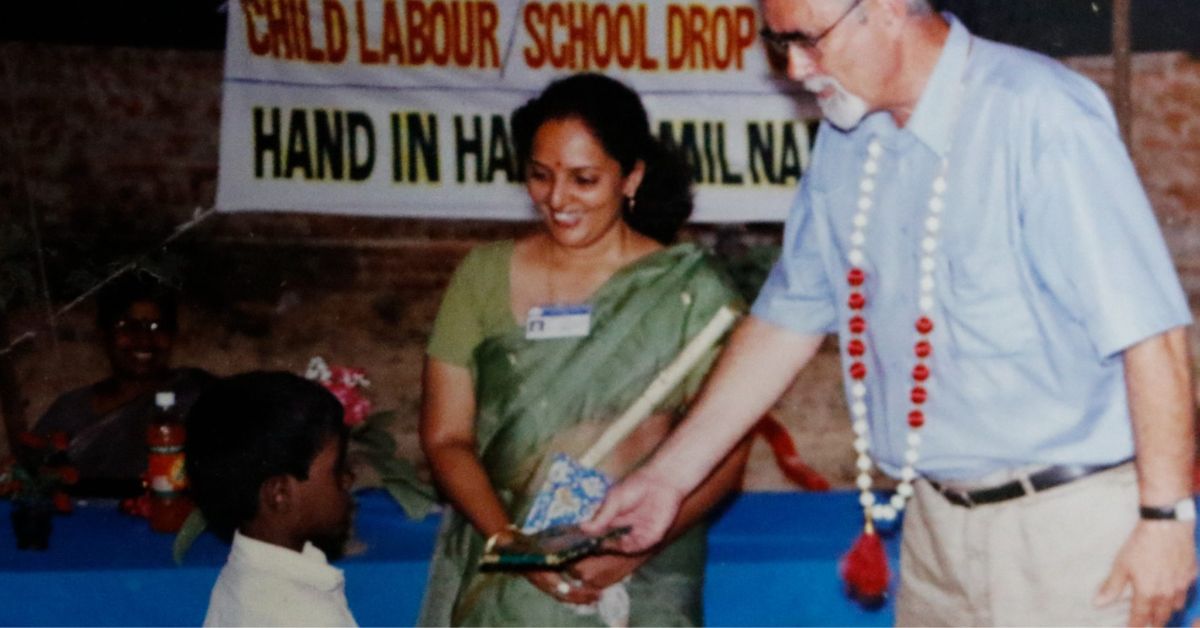
She lets us in on the journey leading up to the touching moment. “Sheela (the girl’s mother) was the leader of the first enterprise ‘Crisp Bakery Unit’ set up by Hand in Hand India. As a single mother, her earnings from the enterprise helped her educate both her children and fund her daughter’s wedding.”
The duo did not forget these acts of kindness. Nor have the lakhs of women helped by Dr Sankar. The genesis of Hand in Hand India was in a charity model that started in 2002 in Tamil Nadu’s Kancheepuram.
‘It was heartbreaking to watch young children at work’
Hailed for its silk sarees, Kancheepuram in Tamil Nadu is home to over 60,000 looms and over 45,000 weavers. Superficially, this is a matter to take pride in. A closer probe will unearth the harsh reality hidden in these statistics.
Behind closed loom doors, young children work hard to spin zari (gold thread) and silk into vibrant sarees that make their way to the rest of India and the world.
Conversations with these children and their families led Dr Sankar to discover the root of this. “Children, traditionally, are a cheap source of labour. Families that have no permanent income send their children to work as bonded labourers in the weaving industry.” In the tug-of-war between a decent livelihood and a square meal, the children’s futures were caught in the crosshairs.
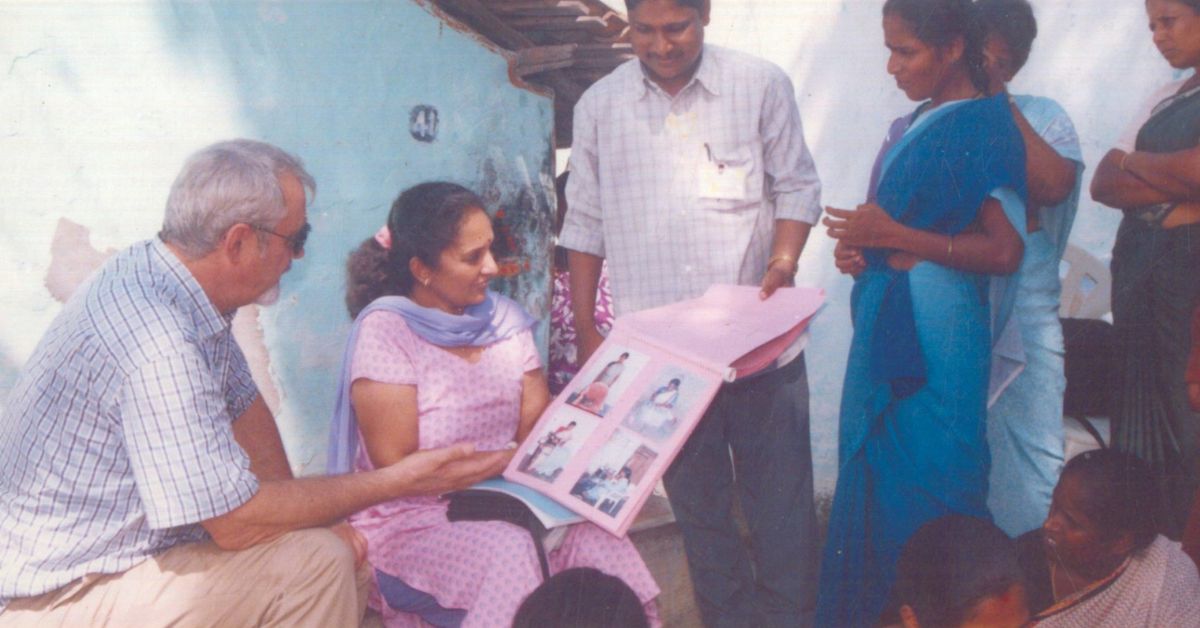
Subsequently, around 2004, another brilliant mind was troubled by this pressing issue. Swedish businessman and philanthropist Dr Percy Barnevik learnt about Dr Sankar — who was then working as a specialist for the UN agency’s International Fund for Agricultural Development. Barnevik approached Dr Sankar with a proposal to manage “a small charity working to eradicate child labour in Kancheepuram”.
The latter said an immediate ‘yes’, and Hand in Hand India was born.
‘We were able to help most of them get their childhoods back’
These children needed a shift in their immediate realities; the duo figured that residential schools would be the best bet to free them from the labour force. “We started eight residential schools across Tamil Nadu, where the curriculum focused on Tamil and English literature, mathematics, physical education, and activity-based learning. We also invested in the kids’ counselling and would track their progress over a period of time. Nearly 40,000 children benefited from these schools,” Dr Sankar notes. But, she says, they deduced that broader social sensitisation was needed to tackle the issue of child labour.
And so, in time, the vision was extrapolated to the kids’ families too. “We decided to address issues of community health, skills development, and eventually, job creation. Today, we are a pan-Indian NGO rewriting the story of rural India,” Dr Sankar smiles.
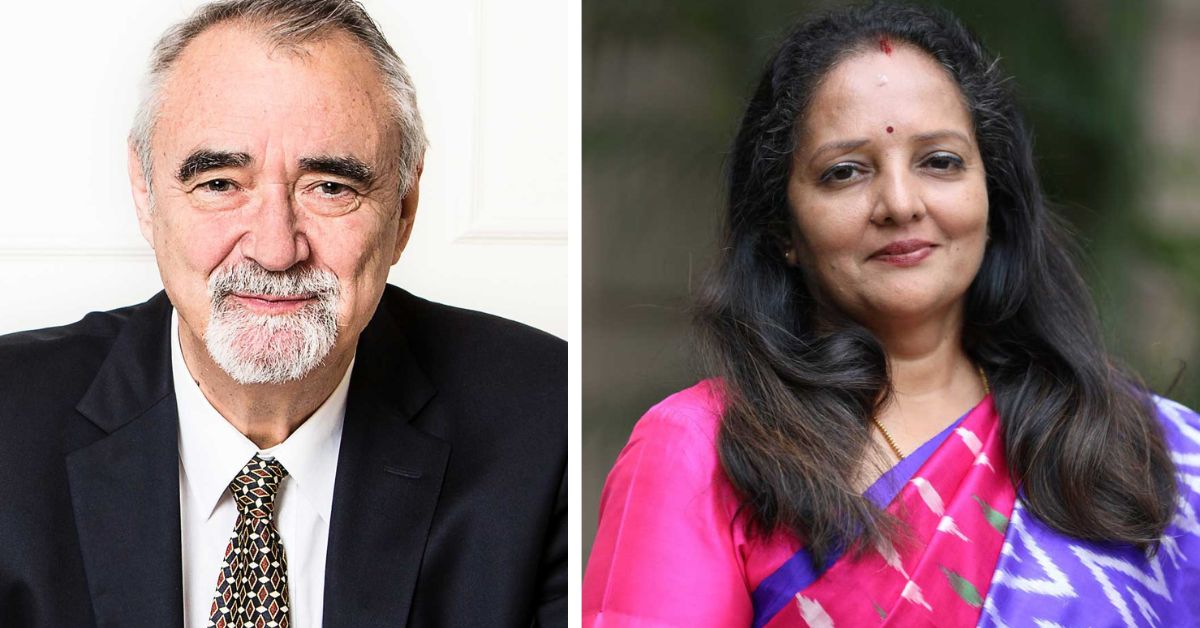
No matter the nature of the day. A call from one of the children — informing her about a job they have secured or sharing a life event with her — manages to light up Dr Sankar’s mood. Point this out to her and she says it is all the validation she needs.
Take Meera’s story for instance. Meera was identified by the Child Labour Elimination Programme (CLEP) field staff in 2013. The family’s ‘scheduled tribe’ status meant they were ostracised from society and Meera and her siblings were compelled to take up odd jobs — working at brick kilns, cutting forest wood, and grazing cattle.
The Hand in Hand India team encouraged Meera’s parents to enrol her and her three siblings at the Dhamaneri Residential Special Training Centre (RSTC) in Tiruvallur district. The team then coaxed Meera to complete her studies until Class 12, providing her with all the necessary resources.
Today, she is a success story.
Stories like these underscore what Dr Sankar has been emphasising — one’s roots mustn’t be a talent differentiator.
Hand in hand with India’s remotest areas
The shelves in Dr Sankar’s office are heavy under the weight of her many accolades — a PhD in nuclear physics; the prestigious Lifetime Achievement Award in Financial Inclusion (2023) for her work in driving transformative socio-economic changes in the rural heartlands of North and South India; the Nari Shakti Puraskar (2016); and the Global Award for Women Empowerment (2019) from UN Women and the Kingdom of Bahrain.
At the heart of every undertaking is the desire to create an inclusion model that doesn’t subscribe to convention. One that makes her most proud is the financial inclusion model, she shares. “We have been able to provide financial inclusion to one million poor people. The fact that we have created 1.5 million jobs is a testimonial to the hard work of my colleagues.”
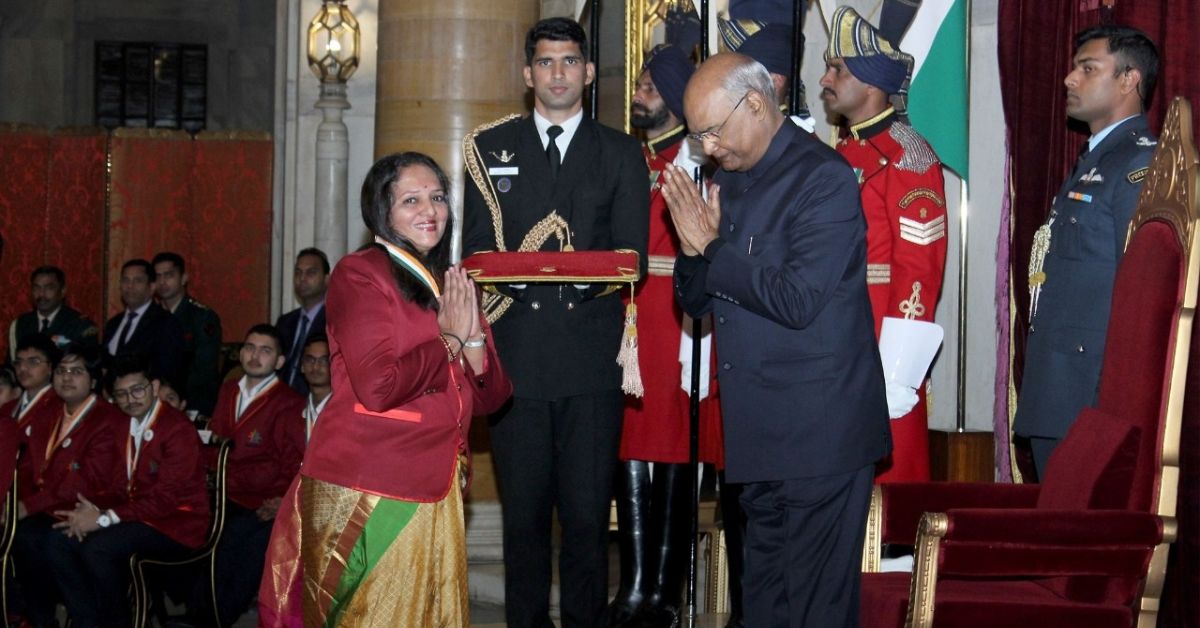
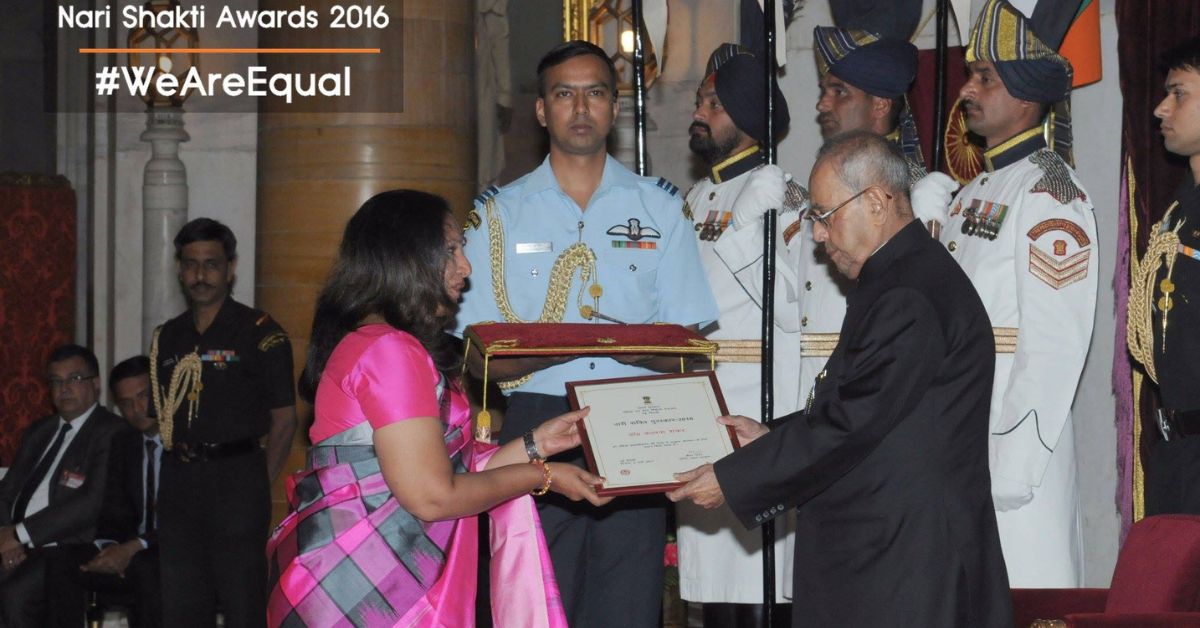
In 2023, rural credit accounted for only 20.8 percent (Rs 11.99 lakh crore) of the Rs 57.58 lakh crore sanctioned by NBFCs in 2021. This highlights the urban-rural divide in access to credit. Thus, when designing a blueprint for the job creation model, Dr Sankar says facilitating access to economic capital was prime. She decided to keep financial independence for women at the fore.
“We ensured this while providing them [the women] skill training to hone their entrepreneurial ability,” she says. The module rests on the backbone that credit alone will not suffice. Skill training and coaching are vital to sustaining a business. “And so, we train these women in group dynamics, benefits of savings, interest computation, and financial and functional literacy,” she shares, adding that watching the women grow from strength to strength and relish their newfound independence thrills her.
A World Bank report underscores how 79 percent of rural households do not have access to a formal loan, while 97 percent of households without a formal loan report not having applied for a loan in the past three years. The reasons they cite are a “lack of need” and “complicated procedures”.
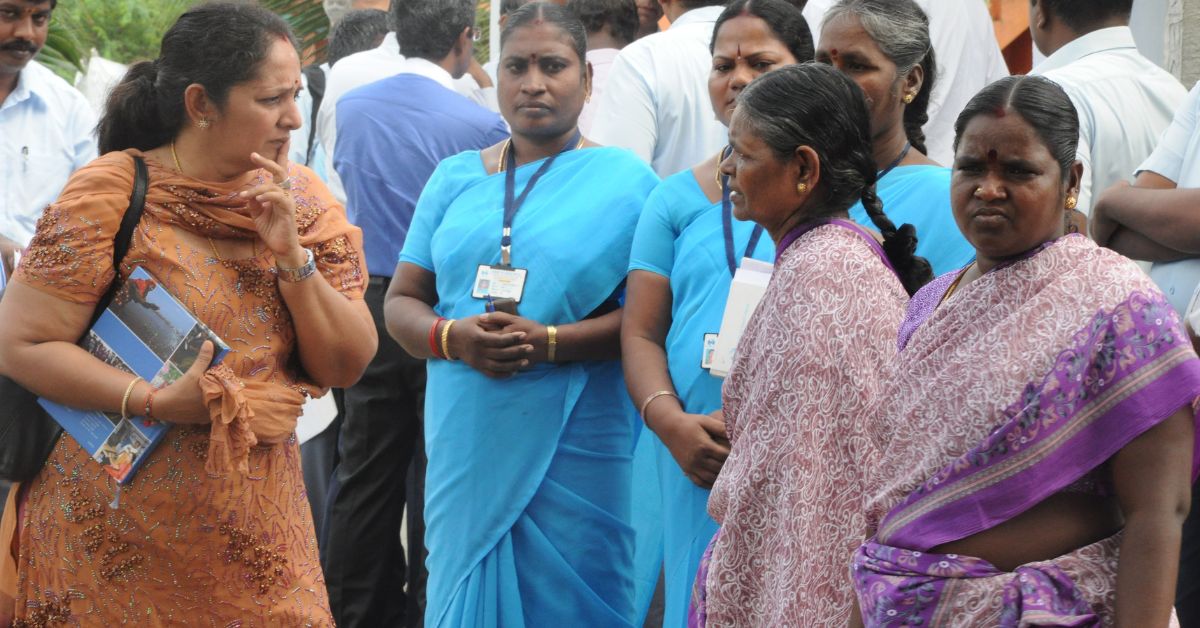
This is where Hand in Hand India steps in. “We offer loans to members of our self-help groups through MFIs or banks to help their businesses take off. The increase in livelihood activities also ensures that women are able to repay their loans with no trouble,” says Dr Sankar. She adds that through the ‘Graduated Entrepreneurs Programme’, Hand in Hand India partners with reputed academic institutions, banks, and MFIs, and focuses on promoting women-led businesses. These social entrepreneurship programmes facilitate access to capital, bank credit and a mentoring programme, paving the way for gender equality and financial independence for women.
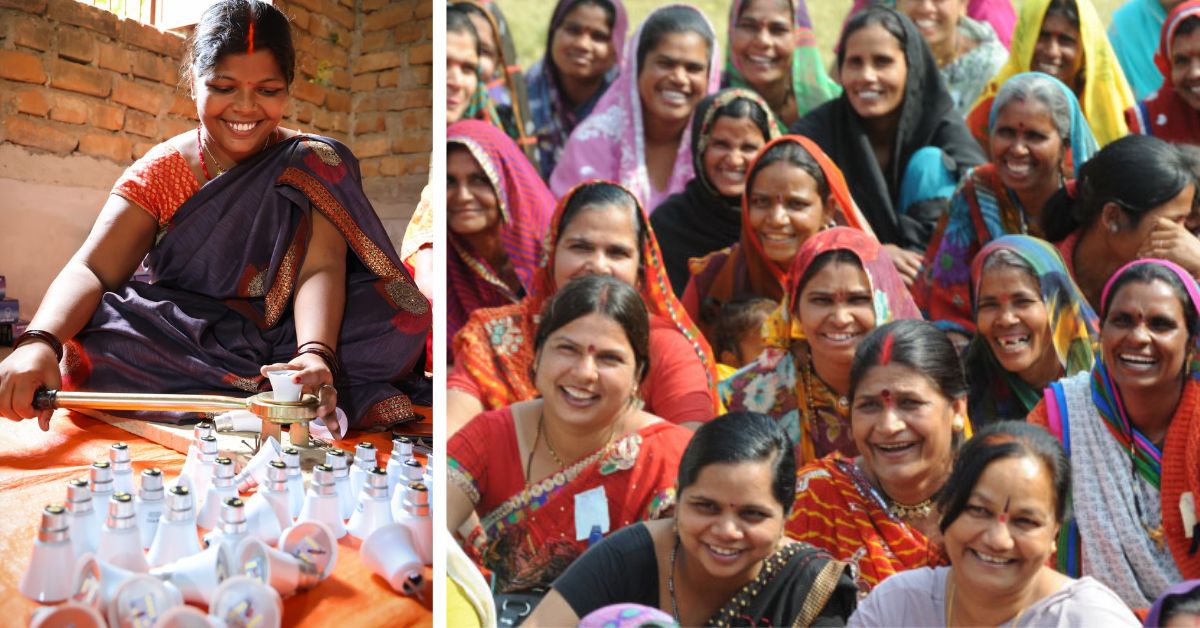
This isn’t all. Having closely worked with the rural strata of society for over two decades now, she is attuned to their struggles. Often, loans need to go beyond credit. “We also facilitate livestock insurance and emergency health service insurance for self-help group members and their spouses to mitigate risks of debt traps,” she mentions.
Dr Sankar has been instrumental in the formation of 5,01,766 self-help groups through Hand in Hand India and the creation of 50,16,728 family-based enterprises — these include tailor shops, mobile repair shops, petty stores, food businesses, and 1,25,351 micro-enterprises. A total of 2.2 million women across Bihar, Gujarat, Kerala, Madhya Pradesh, Puducherry, and Uttarakhand have been helped, she claims.
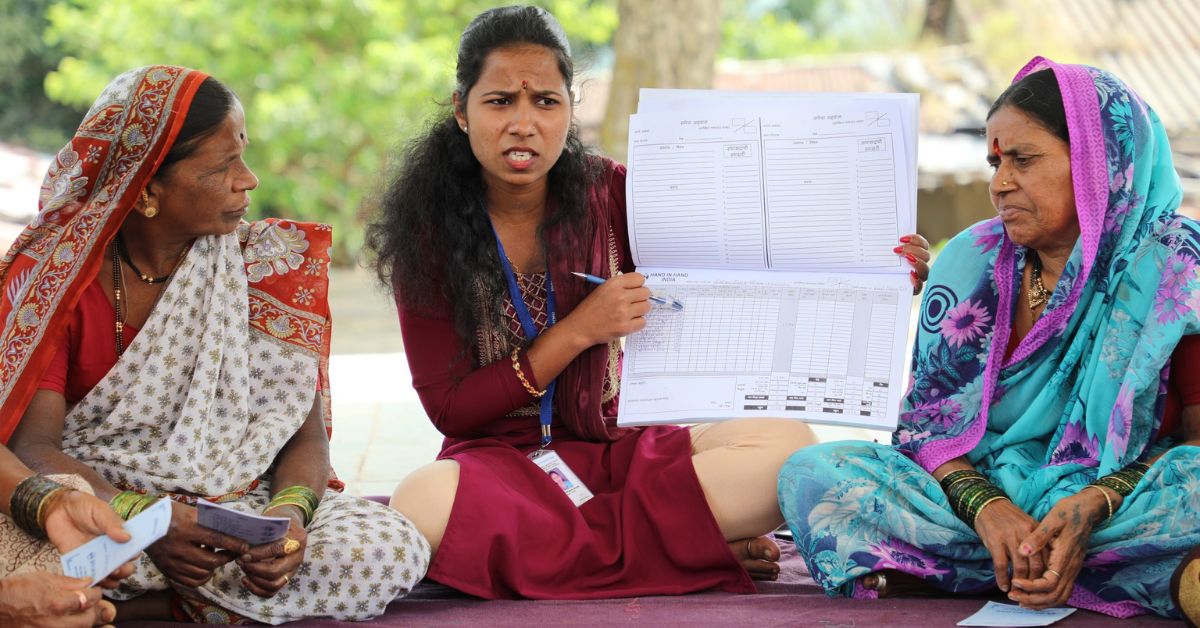
While the Hand in Hand India chapter was incepted in 2004, the NGO has extended to Afghanistan, South Africa, and Brazil.
The scope of their work includes but is not limited to child labour elimination; skill development — women have been given skill training in agriculture, the automotive industry, handicrafts, apparel and wellness; access to healthcare; natural resource management and sustainable waste management.
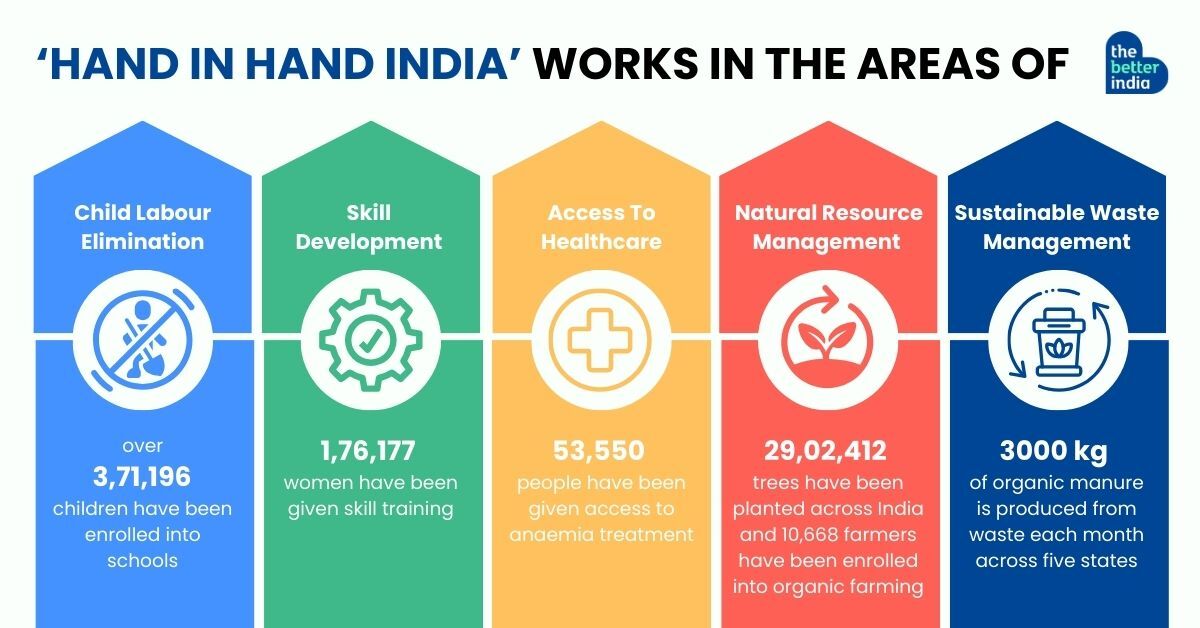
Their village upliftment programme is designed to build self-reliant communities with the potential to bring about integrated development in rural India. Through this, Dr Sankar says, over 500 villages have been helped across Bihar, Gujarat, Jharkhand, Madhya Pradesh, Maharashtra and Tamil Nadu.
The people Dr Sankar extends a hand of help to are those who are not born to privilege. But through the scope of her work, she is ensuring a world of equity. As for the millions she has impacted, their wins feel personal. Their success is a nod to her decision to help rural India be on par with its urban counterpart.
Edited by Pranita Bhat; Pictures source: Dr Kalpana Sankar
No comments:
Post a Comment